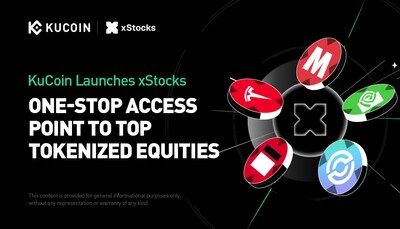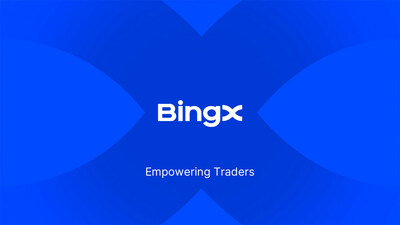This post was originally published on this site
VANCOUVER, BC and DUBAI, UAE, July 16, 2025 /PRNewswire/ — AAJ Capital 3 Corp. (TSXV: AAAJ.P) (“AAJ“), a capital pool company as defined under the policies of the TSX Venture Exchange (“TSXV” or the “Exchange“), is pleased to announce that, further to its press release dated May 19, 2025 (the “LOI Press Release“) and the non-binding letter of intent dated May 11, 2025 with XRP Healthcare M&A Holding Inc. (“XRP“), a corporation organized under the laws of the Abu Dhabi Global Markets (ADGM), it has entered into a share exchange agreement dated July 14, 2025 (the “Definitive Agreement“) in respect of a proposed business combination of AAJ and XRP (the “Proposed Transaction“), which AAJ anticipates will constitute its “Qualifying Transaction” pursuant to Policy 2.4 – Capital Pool Companies of the Exchange (“Policy 2.4“), as such term is defined in the policies of the Exchange. AAJ, as it exists upon completion of the Proposed Transaction (the “Resulting Issuer“), will continue the business of XRP.

Terms of the Proposed Transaction
The Definitive Agreement was negotiated at arm’s length and sets out that, among other things, at closing of the Proposed Transaction, AAJ will issue 37,492,460 common shares in the capital of AAJ (the “AAJ Shares“) to each of the shareholders of XRP in exchange for each ordinary share held in the capital of XRP (the “XRP Shares“) rounded down to the nearest whole number, which is expected to result in a deemed transaction price of CAD$0.40 per AAJ Share.
There are currently 6,450,000 AAJ Shares issued and outstanding with no intention to consolidate or split such shares in connection with the Proposed Transaction. There are also currently 645,000 options to purchase AAJ Shares (the “AAJ Options“) issued and outstanding.
There are currently 1,000,000 XRP Shares issued and outstanding with no intention to consolidate or split such shares in connection with the Proposed Transaction. There are no other securities of XRP issued and outstanding.
It is anticipated that the Resulting Issuer will change its name to ” XRP Healthcare M&A Holding Inc. “, or such other name as may be determined by XRP in its sole discretion, subject to approval by the shareholders of AAJ (the “AAAJ Shareholders“), the TSXV and any other relevant regulatory authorities (the “Name Change“).
Pursuant to the Definitive Agreement, the completion of the Proposed Transaction remains subject to certain conditions precedent that must be satisfied or waived, including, but not limited to: (i) tendering of closing deliverables; (ii) requisite Exchange and other regulatory approvals; (iii) requisite approvals of the AAJ Shareholders for the Name Change, reconstitution of the board of directors and the implementation of an equity incentive plan; (iv) completion of the Private Placement; (v) the preparation of requisite financial statements of XRP; (vii) requirements of sponsorship being met or waived; (viii) no material adverse change occurring with respect to AAJ or XRP between the date of entering into the Definitive Agreement and the closing date of the Proposed Transaction; and (ix) the closing date occurring on or before October 31, 2025. If all conditions to the completion of the Proposed Transaction are satisfied or waived, the Proposed Transaction is expected to be carried out.
The Proposed Transaction will not constitute a “Non-Arm’s Length Qualifying Transaction” (within the meaning of Policy 2.4 of the Exchange).
After giving effect to the Proposed Transaction, the shareholders of XRP (the “XRP Shareholders“) will collectively exercise control over the Resulting Issuer. However, as at the date hereof, it is not possible for the parties to determine the number of AAJ Shares that will be issued upon completion of the Proposed Transaction nor the ownership percentages associated with the AAJ Shareholders and the XRP Shareholders immediately prior to the completion of the Proposed Transaction as this will depend upon and the Private Placement, such factors having an impact on the total number of AAJ Shares that will be issued in connection with the Proposed Transaction. Upon the foregoing being determined, AAJ will issue a press release advising of such.
It is intended that the Resulting Issuer will be listed on the TSXV as a Tier 2 Industrial/Healthcare Issuer, subject to TSXV approval.
Private Placement
Further to the LOI Press Release, in connection with the Proposed Transaction, AAJ intends to complete a private placement of a minimum of 4,450,000 subscription receipts of AAJ Shares to raise gross proceeds of up a minimum of CAD$1,780,000 (the “Private Placement“) at a price of what is expected to be CAD$0.40 per AAJ Share (the “Offering Price“). The proceeds of the Private Placement are intended to be used for expansion of XRP’s fund expansion, operational scale-up and general corporate and working capital purposes.
About AAJ Capital 3 Corp.
AAJ Capital 3 Corp. is incorporated under the Business Corporations Act (British Columbia) and is a capital pool company within the meaning of the policies of the Exchange. AAJ has not commenced operations and has no assets other than cash. AAJ’s principal business is the identification and evaluation of assets or businesses with a view to completing a “Qualifying Transaction” under Policy 2.4.
About XRP Healthcare M&A Holding Inc.
XRP Healthcare M&A Holding Inc. (“XRP”) is a privately held company incorporated in Abu Dhabi, United Arab Emirates, focused on modernizing healthcare access across emerging markets. Through strategic acquisitions and proprietary point-of-care diagnostics, the company operates a growing pharmacy and wholesale distribution network and aims to scale integrated health services across Africa. XRP also leverages its AI-powered digital platform, XRPH AI, to enhance patient engagement, deliver multilingual healthcare support, and improve health outcomes across the regions it serves. The company operates through its 90%-owned subsidiary in Uganda.
Following the completion of the Proposed Transaction, the Resulting Issuer will wholly-own XRP Healthcare M&A Holding Inc., whereby the XRP will continue to control and operate its 90% owned subsidiary Pharma Ville Limited.
A summary of select audited financial information of XRP for the year ended June 30th, 2024 is included in the table below:
|
June 30, 2024
CAD
|
|
Total Assets
|
$723,039.64
|
|
Total Liabilities
|
$468,733.48
|
|
Revenues
|
$1,859,913.43
|
|
Net profit (Loss)
|
(282,991.25)
|
Additional financial information with respect to XRP will be provided in the listing statement to be filed in connection with the Proposed Transaction.
Proposed Directors and Officers
Further to the LOI Press Release, and subject to further determination, it is currently anticipated that all of the current directors and officers of AAJ will resign from their respective positions with AAJ in connection with the closing of the Proposed Transaction. Whitney Lynn, Kain Roomes, Laban Roomes, Keith Errey and Joseph Swantack Jr. are expected to constitute the board of directors of the Resulting Issuer and it is still anticipated Kain Roomes will be appointed Chief Executive Officer. Anna Skowron is expected to be appointed the Chief Financial Officer of the Resulting Issuer.
Whitney Lynn, Chairman
Retired 1st Lieutenant Whitney Lynn is a proposed Chairman of the Resulting Issuer and a veteran of the US Army Medical Service Corps and a seven-time Ironman Triathlon finisher, (2.4-mile swim, 112-mile bike, 26.2-mile run) brings over 45 years of experience in M&A, business development, startups, investment, and leadership. With a proven track record of achieving measurable results across global operations in multiple industries, Whitney is a highly accomplished CEO, entrepreneur, startup mentor, business advisor, and executive turnaround consultant.
As a Vice President Software Mergers and Acquisitions at Corum Group Ltd, Whitney was part of the team that has created over 10 billion USD in wealth and conducted over 400 M&A transactions with over $4 Billion US Dollars in transactions in more than 13 countries during the past 35 years. In this capacity, he provided strategic M&A and transactional assistance and guidance to help companies grow. Whitney also served as President of RWBC Holding, where he provided support to a family-owned company, helping to manage its growth. During his tenure as Interim President & CEO of the 300 million USD Borland International, Whitney executed a strategic plan to gain profitability by downsizing headcount and implementing aggressive cost-saving initiatives. He also revamped the marketing strategy, completed the successful acquisition of Open Environment Corporation, where he was Fractional Chief Operating Officer, and drove the successful integration of OEC employees and subsidiaries with new leadership and culture worldwide. As President & Chief Operating Officer of Colorbus, Inc., Whitney led the worldwide consolidation, integration, and restructuring of the combined companies with 180 employees and worldwide revenue of $45M. He reduced expenses and headcount to maximize efficiency and revenue contribution per employee, significantly improving quality, on-time delivery, and customer satisfaction.
He also was the Founder, Executive Vice President and Chief Operating Officer at lncat Systems Software USA Inc which was successfully sold after only two years to Adaptec Inc for a total value of $26 US Million Dollars and the President & CEO of Meridian Data Inc. With a talent for building and nurturing strong, trust-based relationships, Whitney advises, coaches, and mentor’s leaders to accelerate growth and profitability while positioning companies for takeover, negotiating mergers or acquisitions, and leading restructuring efforts once acquired.
Whitney has founded and grown several highly profitable smaller software, systems, and storage companies, turning around companies from unprofitable defined market segments to revenue generation by developing targeted products, increasing customer base, and market share. He has also built major key account relationships and channels of distribution.
As a business owner, Whitney purchased the Ironman bike shop in Kona Hawaii, and a high-end Triathlon Specific Bike Store in San Diego, CA. He increased margins and sales by reducing operational expenses, managed operations, budgeting, finance, P&L, recruiting and training staff, and inventory management. Whitney also grew the business with aggressive sponsor programs and triathlete endorsements. He is a Member of the Eliances, Newchip Accelerator, where he has worked with and mentored ideation, early stage and start-up companies in various capacities guiding them towards acquiring investors and creation of unique product launch strategies with the most effective channels of distribution. He has increased margins and sales through the elimination of redundant operations, managed operations, budgeting, finance, P&L, recruiting and training staff, inventory management with great sponsorship networks. Further, he graduated from the University of Arizona with a Bachelor’s Degree in Accounting and General Business.
Kain Roomes, Founder & CEO
Kain Roomes, CEO & founder of XRP Healthcare and is the proposed CEO & director of the Resulting Issuer and is, has a unique background that combines athletic drive, business acumen, and a pioneering vision in blockchain healthcare. Originally set for a professional soccer career, Kain’s path took an unexpected turn when he suddenly lost passion for the game, leading him to fitness modelling, where he represented major brands like Nike and Sports Direct.
In 2018, he made a bold move into cryptocurrency by acting on advice from his father Laban Roomes which resulted in them both selling their luxury Rolex Submariner watches to fund an initial Bitcoin investment, later diversifying into altcoins like Zilliqa and XRP. Kains’ strategic choices turned a £7,500 investment into over £2,000,000, marking him as a notable figure in the crypto space.
In September 2022, Kain co-founded XRP Healthcare with his father, Laban Roomes, launching the first pharma and healthcare platform on the XRP Ledger. Under his leadership, the company grew from zero to a valuation of $194 million within three months. Recently, XRP Healthcare has expanded into mergers and acquisitions in East Africa, positioning itself to make a meaningful impact on the region’s healthcare accessibility. Kain’s journey is a testament to resilience, vision and the foresight to take calculated risks-transforming challenges into opportunities and building XRP Healthcare into a leading force in the healthcare industry.
Laban Roomes, Co-Founder & COO
Laban Roomes is a COO and Director of XRP and proposed COO and Director of the Resulting Issuer and is a serial entrepreneur who Co-founded XRP with his son Kain Roomes, the first Pharma and Healthcare platform to be built on the XRP Ledger.
Having had success investing in a medicinal cannabis company (Marigold Projects Jamaica) of which 49% was then sold to the Canadian public company giant Aphria for USD$80 million. Laban started investing in Bitcoin in 2018, and since then has made several other investments into Blockchain technology companies such as XRP, Zilliqa, Centric and XCAD. Laban designed and manufactured an innovative portable plating device and in October of 2007, Laban pitched his gold-plating technology – and market traction – live on the hit BBC T.V investment pitching programme ‘Dragon’s Den’ and successfully acquired funding, as well as new guidance from multi-millionaire Dragon James Caan. After 3 years Laban purchased all his shares back from James Caan whilst remaining business allies to follow a new vision for the business. Since then, Laban has attended and supplied luxury gifts in person to the Oscars, created luxury ranges of iPods and iPhones for a host of celebrities including Elton John the Beckhams, Floyd Money Mayweather, Usain Bolt, Mark Wahlberg, Clint Eastwood and Will Smith, to mention just a few, not to mention creating an opportunity for hundreds of individuals worldwide to work from home using his portable gold plating technology. The company has also launched initiatives and campaigns to raise money by donating a percentage of the company’s luxury gift sales to raise much-needed cash for several high-profile charities including the Elton John Aids Foundation (EJAF), The Teenage Cancer TRUST and SOS Children’s Villages.
Laban has also gone on to win the Great British Entrepreneur and the coveted Lloyds TSB – FSB Entrepreneur of the year award and now spends his time in Jamaica, Miami, and Dubai where he has business interests.
Anna Skowron, CFO
Anna Skowron is the current CFO of XRP and proposed CFO of the Resulting Issuer and is has over 14 years’ experience in strategic accounting and financial leadership, including serving as chief financial officer, chief accounting officer and in other senior financial executive roles at both domestic and multi-national public and private companies. She also has played a key role in various business acquisitions and capital raising initiatives across multiple industries. Since 2015, Ms. Skowron has served as principal of Skowron Accounting Professional Corporation, an Advisory firm that specializes in financial reporting, compliance, corporate governance and business strategy, in which capacity she provides accounting advisory services. Ms. Skowron holds a Bachelor of Commerce and Finance with specialization in Accounting and Economics from the University of Toronto and became a member of the Institute of Chartered Accounts of Ontario in 2014. She is licensed as a Chartered Professional Accountant.
Keith Errey, Independent Director (Proposed)
Keith Errey is a proposed independent director of the Resulting Issuer and is an experienced technology entrepreneur and executive with a distinguished career spanning over four decades across healthcare, semiconductors, lasers, and technology commercialization. Most recently, he served as the Co-Founder and CEO of Isansys Lifecare Ltd (2010–2025), where he led the company to become a global leader in wireless patient monitoring systems.
Prior to that, Keith co-founded Toumaz Technology plc (later Sensium Ltd) in 2000, where he held the role of Chief Executive Officer until 2010. Under his leadership, the company developed and commercialized Sensium, a groundbreaking semiconductor chip for wearable clinical sensors. He played a central role in securing seed funding, negotiating IP and equity structures with Imperial College London, and taking the company public through a reverse merger on the AIM London exchange. Keith successfully negotiated licensing deals valued at over USD 2.5 million with Texas Instruments and Cardinal Health.
Between 1998 and 2004, he founded and directed Oxford Synergetics Ltd, a technology transfer and management consultancy. His work included commercial audits for Oxford Brookes University and project management for Oxtek Ltd, including regulatory approvals and manufacturing rollout. Earlier, Keith served as Sales and Marketing Director at Oxford Lasers Ltd (1989–1998), where he established international subsidiaries in Japan and Germany, negotiated major technology transfers, and led the company back to profitability. He also held engineering and production leadership roles at Oxford Lasers from 1982, contributing to key business and product development initiatives.
Keith’s academic experience includes part-time lecturing at Oxford Brookes University, where he taught modules in Engineering Management and Operations between 1999 and 2001. He was also a Research Assistant at the Department of Physics, University of Oxford (1979–1982), focusing on advanced laser systems. Earlier in his career, he taught high school physics and engineering in Australia and worked as a telecommunications engineer at Telecom Australia (now Telstra).
He holds an MSc by thesis from Oxford University (Linacre College), with research in plasma excitation and laser systems, and a BSc in Engineering and Physics from the University of New South Wales. He also earned professional engineering qualifications through open examination at Telecom Australia. Keith has completed executive training with the Institute of Directors and at Ashfield Management College.
Keith has secured multiple competitive grants including SMART, LINK, and BRITE awards, and was a principal engineer on a project that received the Queen’s Award for Technology in 1985. His work has been published in technical journals and books, and he has delivered numerous technical lectures in Europe and Japan on laser technologies and high-speed imaging. He speaks reasonable French and has basic proficiency in Japanese, supported by extended time living and working internationally, including in France and Japan.
Joseph J. Swantack Jr. Independent Director (Proposed)
Joseph J. Swantack Jr. is a proposed independent director of the Resulting Issuer, who is a visionary executive and strategic operator based in Columbus, Ohio, with a proven track record across advanced medical technology, aerospace innovation, and large-scale retail management. Since 2016, he has served as CEO of STARK Industries LLC, where he leads groundbreaking collaborations with NASA researchers to pioneer wireless health monitoring technologies for high-stakes aerospace environments and future exploration-class missions.
In 2020, following STARK Industries’ acquisition of an exclusive license from NASA Jet Propulsion Laboratory/Caltech to manufacture and distribute the VITAL ventilator—an emergency device designed by NASA engineers during the COVID-19 crisis—Mr. Swantack spearheaded the formation and spin-off of Spiritus Medical, Inc. He currently serves as Interim CEO and President, overseeing commercialization of this life-saving innovation. Before his entry into healthtech and aerospace, Mr. Swantack built a foundation in operational leadership at The Kroger Company, the largest traditional grocery retailer in the U.S. As Operations Manager, he directed store performance across 250+ locations, managing over $40 million USD in annual budgets throughout the Midwest. Blending deep experience in emerging technologies with enterprise-scale operational expertise, Joseph Swantack is driving impact at the intersection of science, business, and public health.
Other Principals or Insiders of the Resulting Issuer
The following are other Principals or Insiders (as those terms are defined in TSXV policies) currently contemplated in connection with the Resulting Issuer. If any further Principals or Insiders are proposed in connection with the Resulting Issuer, such other persons will be disclosed in a subsequent press release of AAJ. Certain common shares of the Resulting Issuer to be issued pursuant to the Proposed Transaction are expected to be subject to restrictions on resale or escrow under the policies of the TSXV, including the securities to be issued to Principals, which will be subject to the escrow requirements of the Exchange.
XRP Healthcare M&A Holding Inc.
XRP Healthcare M&A Holding Inc. (“XRP”) is a privately held company incorporated in Abu Dhabi, United Arab Emirates, focused on modernizing healthcare access across emerging markets. Through strategic acquisitions and proprietary point-of-care diagnostics, the company operates a growing pharmacy and wholesale distribution network and aims to scale integrated health services across Africa. XRP also leverages its AI-powered digital platform, XRPH AI, to enhance patient engagement, deliver multilingual healthcare support, and improve health outcomes across the regions it serves. The company operates through its 90%-owned subsidiary in Uganda. XRP Healthcare M&A Holding Inc. was incorporated in February 19th, 2025, that holds 90% of the PharmaVille Shares. The shareholders of XRP are Kain Roomes (holding 50%), and Laban Roomes (holding 50%).
Pharma Ville Limited
Pharma Ville Limited incorporated in 2016, Pharma Ville is a well-established pharmaceutical company headquartered in Kampala, Uganda, operating a total of seven branches—including five wholesale distribution centers and two retail pharmacies. Its wholesale operations supply a broad range of pharmaceutical products to hospitals, clinics, and pharmacies throughout the region, while its retail outlets serve local communities with accessible prescription and over-the-counter medications. Known for its regulatory compliance, experienced team, and market presence, Pharma Ville represents a strong platform for growth within the region. As part of its integration into XRP Healthcare’s expanding network, Pharma Ville is expected to benefit from enhanced operational systems and alignment with the company’s AI-powered healthcare initiatives—supporting efficiency, data-driven insights, and improved patient outcomes. The shareholders of Pharma Ville are XRP Healthcare Holding Inc. (holding 90%), Richard Kitaka Kitonsa (holding 5%), and Ssegawa Rebecca Nabasirye (holding 5%).
Sponsorship of the Proposed Transaction
As disclosed in the LOI Press Release, AAJ and XRP jointly intends to make an application for waiver from the sponsorship requirements of the TSXV in connection with the Proposed Transaction; however, there is no assurance that the TSXV will waive all or part of applicable sponsorship requirements.
Trading Halt
As disclosed in the LOI Press Release, in accordance with the policies of the TSXV, trading in the AAJ Shares has been halted and is not expected to resume trading until completion of the Proposed Transaction or until the TSXV receives the requisite documentation to resume trading.
AAJ Meeting
As the Proposed Transaction is not a “Non-Arm’s Length Qualifying Transaction” (within the meaning of Policy 2.4 of the Exchange), it is not anticipated that the Proposed Transaction will require approval of the AAJ Shareholders. However, the Name Change, the Resulting Issuer director appointments and the implementation of an equity incentive plan for the Resulting Issuer will require the approval of AAJ Shareholders at an annual and special meeting of AAJ Shareholders (the “AAJ Meeting“) that is expected to be held prior to the completion of the Proposed Transaction. Further details with respect to the matters to be approved at the AAJ Meeting will be contained in the management information circular prepared in connection with AAJ Meeting and available for review on AAJ’s SEDAR+ profile at www.sedarplus.ca.
Advisors
ARC Group Limited is acting as the exclusive financial advisor to XRP Healthcare M&A Holding Inc Oakridge Law LLP (Ontario) is serving as legal counsel to XRP Healthcare M&A Holding Inc.
Additional Information
Additional information concerning the Proposed Transaction and any connected transactions of AAJ, XRP and the Resulting Issuer, will be provided in subsequent press releases and in AAJ’s management information circular or prospectus to be prepared in connection with the Proposed Transaction, to be filed in connection with the Proposed Transaction, which will be available under AAJ’s SEDAR+ profile at www.sedarplus.ca.
All information contained in this press release with respect to AAJ and XRP was supplied by or from the respective party for inclusion herein, without independent review by the other party, and each party and its directors and officers have relied on the other party for any information concerning the other party.
Completion of the Proposed Transaction is subject to a number of conditions, including but not limited to, Exchange acceptance and, if applicable pursuant to Exchange requirements, majority of the minority shareholder approval. Where applicable, the Proposed Transaction cannot close until the required shareholder approval is obtained. There can be no assurance that the Proposed Transaction will be completed as proposed or at all.
Investors are cautioned that, except as disclosed in the management information circular or listing statement to be prepared in connection with the Proposed Transaction, any information released or received with respect to the Proposed Transaction may not be accurate or complete and should not be relied upon. Trading in the securities of a capital pool company should be considered highly speculative.
The TSX Venture Exchange Inc. has in no way passed upon the merits of the Proposed Transaction and has neither approved nor disapproved the contents of this press release.
Further Information
For further information, please contact:
AAJ Capital 3 Corp.
Peeyush Varshney, CEO
Email: peeyush@varshneycapital.com
Phone: 604-684-2181
XRP Healthcare M&A Holding Inc.
Kain Roomes
Email: kain@xrphealthcare.com
Phone: +44 7545 026879
Forward-Looking Information
This press release contains forward-looking statements and forward-looking information (collectively, “forward-looking statements“) within the meaning of applicable securities laws. Any statements that are contained in this press release that are not statements of historical fact may be deemed to be forward-looking statements. Forward-looking statements are often identified by terms such as “may”, “should”, “anticipate”, “will”, “estimates”, “believes”, “intends” “expects” and similar expressions which are intended to identify forward-looking statements. More particularly and without limitation, this press release contains forward-looking statements concerning the Proposed Transaction, the Name Change, the AAJ Meeting, the Private Placement, the expected composition of the board of directors and senior officers of the Resulting Issuer, the completion and timing of the application to the TSXV in respect of the Proposed Transaction, the proposed structure by which the Proposed Transaction is to be completed, the ability of AAJ and XRP to meet the conditions of the Proposed Transaction in the required timeframes, the obtainment of the necessary exemptions and approvals from the TSXV or other regulatory bodies, subsequent press releases and the business, name and function of the Resulting Issuer and certain financial information and forecasts.
AAJ cautions that all forward-looking statements are inherently uncertain, and that actual performance may be affected by a number of material factors, assumptions and expectations, many of which are beyond the control of AAJ and XRP, including expectations and assumptions concerning AAJ, XRP, the Resulting Issuer, the Proposed Transaction, the closing of the Proposed Transaction, the timely receipt of all required shareholder and regulatory approvals, including the acceptance of the TSXV, the satisfaction of other closing conditions in accordance with the terms of the Definitive Agreement, as well as other risks, uncertainties and assumptions, including assumptions regarding prevailing market conditions and general business, economic, competitive, political and social uncertainties to develop the forward-looking information in this press release. There can be no assurance that such statements, although considered reasonable by management at the time of preparation, will prove to be accurate, as actual results and future events could differ materially from those anticipated in such statements. Accordingly, the reader is cautioned not to place undue reliance on any forward-looking statements. Forward-looking statements contained in this press release are expressly qualified by this cautionary statement.
The forward-looking statements contained in this press release are made as of the date of this press release, and AAJ does not undertake any obligation to update publicly or to revise any of the included forward-looking statements, whether as a result of new information, future events or otherwise, except as expressly required by securities law.
This press release shall not constitute an offer to sell or the solicitation of an offer to buy any securities in any jurisdiction.
Neither TSXV nor its Regulation Services Provider (as that term is defined in the policies of the TSX Venture Exchange) accepts responsibility for the adequacy or accuracy of this press release.
NOT FOR DISTRIBUTION TO U.S. NEWSWIRE SERVICES OR FOR DISSEMINATION IN THE UNITED STATES.
Photo – https://megastockalert.com/wp-content/uploads/2025/07/XRP_Healthcare.jpg
Logo – https://mma.prnewswire.com/media/2365357/5418341/XRP_Healthcare_Logo.jpg
 View original content:https://www.prnewswire.co.uk/news-releases/aaj-capital-3-corp-announces-definitive-agreement-for-qualifying-transaction-with-xrp-healthcare-ma-holding-inc-302507061.html
View original content:https://www.prnewswire.co.uk/news-releases/aaj-capital-3-corp-announces-definitive-agreement-for-qualifying-transaction-with-xrp-healthcare-ma-holding-inc-302507061.html

Featured Image: depositphotos @ akulamatiau
Disclaimer























